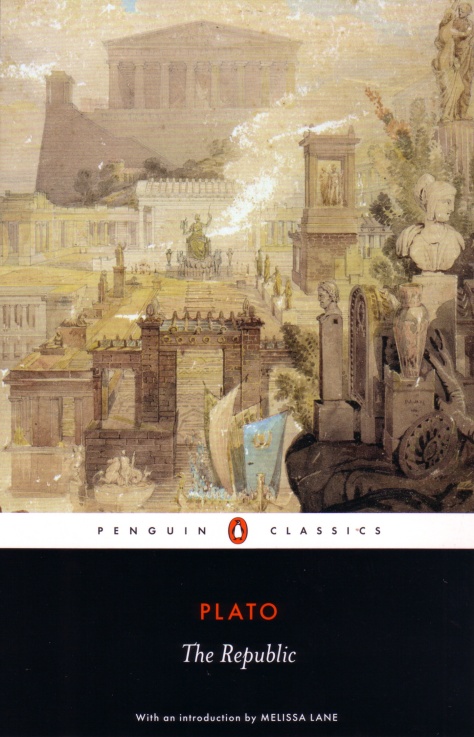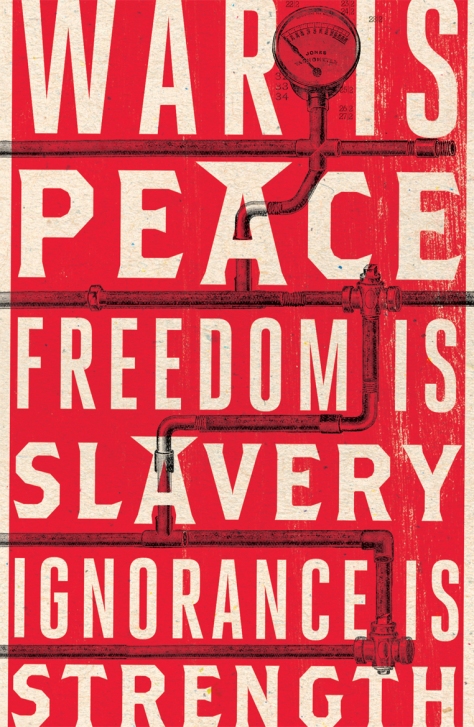“Plato’s Utopia is more terrifying than Orwell’s 1984…”, por Arthur Koestler @ The Sleepwalkers (1959)
“Plato’s Utopia is more terrifying than Orwell’s 1984 because Plato desires to happen what Orwell fears might happen. ‘That Plato’s Republic should have been admired, on its political side, by decent people, is perhaps the most astonishing example of literary snobbery in all history’, remarked Bertrand Russell. In Plato’s Republic, the aristocracy rules by means of the ‘noble lie’, that is, by pretending that God has created 3 kinds of men, made respectively of gold (the rulers), of silver (the soldiers) and of base metals (the common man). Another pious lie will help to improve the race: when marriage is abolished, people will be made to draw mating-lots, but the lots will be secretly manipulated by the rulers according to the principles of eugenics. There will be rigid censorship; no young person must be allowed to read Homer because he spreads disrespect of the gods, unseemly merriment, and the fear of death, thus discouraging people from dying in battle.
Aristotle’s politics move along less extreme, but essentially similar lines. Not only does he regard slavery as the natural basis of the social order – ‘the slave is totally devoid of any faculty of reasoning’ – he also deplores the existence of a ‘middle’ class of free artisans and professional men, because their superficial resemblance to the rulers brings discredit on the latter. Accordingly, all professionals are to be deprived of the righs of citizenship in the Model State…
Even these cursory remarks may indicate the general mood underlying these philosophies: the unconscious yearning for stability and permanence in a crumbling world where ‘change’ can only be a change for the worse… ‘Change’, for Plato, is virtually synonymous with degeneration; his history of creation is a story of the sucessive emergence of ever lower and less worthy forms of Life – from God who is pure self-contained Goodness, to the World of Reality which consists only of perfect Formas or Ideas, to the World of Appeareance, which is a shadow and copy of the former; and so down to man: ‘Those of men first created who led a life of cowardice and injustice were suitably reborn as women in the second generation, and this is why it was at this particular juncture that the gods contrived the lust for copulation’. After the women we come to the animals… It is a tale of the Fall in permanence: a theory of descent and devolution – as opposed to evolution by ascent.
Let us retain this essential clue to Plato’s cosmology: his fear of change, his contempt and loathing for the concepts of evolution and mutability. It will reverberate all through the Middle Ages, together with its concominant yearning for eternal, changeless perfection. This ‘mutation phobia’ seems to be mainly responsible for the repellent aspects of Platonism: empirical science is ridiculed and discouraged; physics is made into a department of theology; (…)there’s hatred of the body and contempt for the senses.
All this is not an expression of humility – neither of the humiity of the mystic seeker for God, nor the humility of Reason acknowledging its limits; it is the half-frightened, half-arrogant philosophy of the genius of a doomed aristocracy and a bankrupt civilization. When reality becomes unbearable, the mind must withdraw from it and create a world of artificial perfection. Plato’s world of pure Ideas and Forms, which alone is to be considered as real, whereas the world of nature which we perceive is merely its cheap copy, is a flight into delusion.”
ARTHUR KOESTLER
The Sleepwalkers
Arkana/Penguin, 1959, Pg. 58.
Publicado em: 28/12/13
De autoria: casadevidro247
1 comentário
1) aquele que propõe uma sociedade ideal o faz porque identifica vícios na sociedade em que vive. Portanto, a proposta de Platão está longe de tentar conservar uma realidade, mas, na verdade, propunha uma ruptura.
2) a dialética e a ideia de reencarnação de Platão implicam a possibilidade de evolução da alma rumo ao Eidos. Tais, por si só, negam a hipótese do autor de que Platão imaginaria uma sociedade que só se degradasse.
3) Platão não propõe a eugenia para a Republica. Segundo a sua concepçao de afinidade de almas, almas semelhantes se aproximam, naturalmente, de outras semelhantes por um criterio de afinidade. O que ele efetivamente menciona é que do relacionamento de pessoas classificadas por ele como filósofas nasceriam pessoas do mesmo nível moral. E essas tambem seriam aptas a governar.
4) o texto fala em rígida censura, mas admite que só se aplica aos jovens. As diferenças são enormes com relação à distopia do Orwell.
5) curioso o fato de pautarem uma crítica inteira em valores morais como o da igualdade mas o relacionarem com Nietzsche.







Marcelo Llaberia
Comentou em 29/12/13